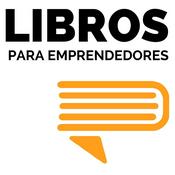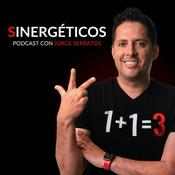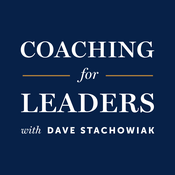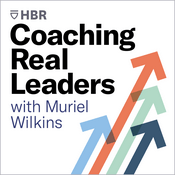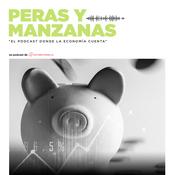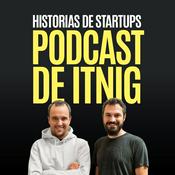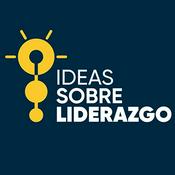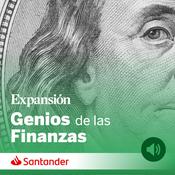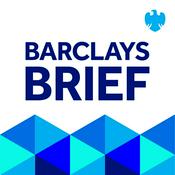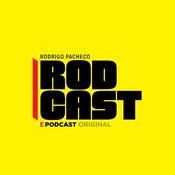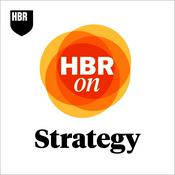317 episodios

Stablecoins, Regulation, Mining And 2026 Outlook
08/1/2026 | 1 h 11 min
Since inception, ARK has researched and published thoughts on the cryptocurrency ecosystem within Big Ideas and through articles, whitepapers, monthly Bitcoin reports and podcasts. Now, in coordination with Bitcoin Park, ARK is pleased to introduce a monthly conversation with leaders in the Bitcoin space, to discuss everything happening in the rapidly-changing and still nascent Bitcoin ecosystem. Published through the For Your innovation podcast channels, this monthly series aims to be informative and enlightening, including experts with diverse viewpoints. Guests on this month’s Bitcoin Brainstorm include: Lorenzo Valente: Director of Digital Assets at ARK InvestFrank Corva: Former Bitcoin White House Correspondent and Contributor to Forbes CryptoJeff Booth: General Partner of Ego Death Capital and Board Member of Core Scientific Rory Murray: VP Digital Assets Management at CleanSparkCathie Wood: Founder, CEO and CIO at ARK InvestRod Roudi: Co-Founder, Bitcoin Park Key Points From This Episode:0:00 — Welcome + 2025 → 2026 setup0:52 — 2025 price action: $120k, 10/10 flash crash, four-year cycle & volatility5:06 — Why 2025 was a “before/after” year: Genius Act, Clarity Act, institutional rails10:13 — Stablecoins vs Bitcoin: “usurping a role” + medium-of-exchange reality check12:38 — Circular economies on the ground: Kibera (Afribit) + real-world usage20:32 — US adoption push: Square/Block terminals + merchant acceptance22:26 — The “de minimis” tax exemption: why it matters + political momentum28:04 — Privacy + developer protections: Clarity Act language, Samourai/Tornado Cash concerns32:01 — Bitcoin as pristine collateral: miners, credit markets, yield/treasury management48:29 — Mining & energy convergence: AI/High Performance Computing (HPC) shift, hashrate decentralization, supply chain/ASICs56:14 — Bold predictions for 2026: normalization + “de-taboo-ization” of Bitcoin Learn more about Bitcoin Park: bitcoinpark.com

Major Shifts In The AI Landscape | The Brainstorm EP 115
07/1/2026 | 51 min
In this episode of The Brainstorm, we discuss the latest developments in AI and technology, including NVIDIA's strategic moves with Groq and Meta's acquisition of Manus AI. We explore the implications of these acquisitions on the AI landscape, the potential for orchestration layers in AI models, and the competitive dynamics among major tech companies. The conversation also touches on the future of user interfaces and the evolving role of voice and text in consumer interactions.If you know ARK, then you probably know about our long-term research projections, like estimating where we will be 5-10 years from now! But just because we are long-term investors, doesn’t mean we don’t have strong views and opinions on breaking news. In fact, we discuss and debate this every day. So now we’re sharing some of these internal discussions with you in our new video series, “The Brainstorm”, a co-production from ARK and Wolf.financial, and sponsored by Public. Tune in every week as we react to the latest in innovation. Here and there we’ll be joined by special guests, but ultimately this is our chance to join the conversation and share ARK’s quick takes on what’s going on in tech today.Key Points From This Episode:NVIDIA's strategic investment in Groq highlights its focus on enhancing AI chip capabilities without full acquisition, aiming to secure a competitive edge.Meta's acquisition of Manus AI emphasizes the importance of orchestration layers in delivering agentic AI experiences, integrating multiple models for diverse applications.The discussion explores the evolving AI landscape, questioning whether foundational models or their applications (wrappers) hold more value for end-users.The hosts debate the future of user interfaces, predicting a shift towards voice interactions and the potential for new hardware innovations.The episode concludes with a look at the competitive dynamics in the tech industry, particularly the role of initial public offerings (IPOs) and acquisitions in shaping market leadership.To learn more about WOLF: https://wolf.financialTo learn more about Public: https://public.com/

Best Of 2025
31/12/2025 | 1 h 21 min
On this year’s final episode of FYI, we will be taking the opportunity to highlight some of the best moments from throughout the year. While we are grateful for every single guest that has joined the For Your Innovation podcast, here is a compilation of some of our favorite moments. Key Points From Each Highlighted Episode: Vlad Tenev: Robinhood’s north star is a “financial super app” that uses tokenization/stablecoins to broaden access and ownership for everyday investors. Tom Lee: Digital-asset treasury companies can be the traditional finance (TradFi) wrapper that makes token exposure easier to own inside existing market plumbing. Dr. Jin-Hyung Lee: Real “understanding” of the brain means measuring and controlling circuits precisely enough to restore function—and building models that connect intervention to outcome. Peter Diamandis: Aging is increasingly framed as an epigenetic + systems problem, where AI and better therapies could accelerate progress toward “longevity escape velocity.” Peter Walker: Venture dollars are increasingly concentrated in AI (especially late-stage) while liquidity remains constrained without a healthier initial public offering (IPO) market.

How Securitize Is Rebuilding Capital Markets With Carlos Domingo
18/12/2025 | 49 min
In this episode, Brett Winton and Lorenzo sit down with Carlos Domingo, CEO and co-founder of Securitize, to explore how blockchain infrastructure is transforming capital markets. As a pioneer in the tokenization space, Carlos unpacks what it means to issue native securities—like stocks, bonds, and credit funds—on chain and why the modernization of legacy financial systems is long overdue. Carlos details Securitize’s role as a registered transfer agent and broker-dealer, their regulatory journey with the Securities and Exchange Commission (SEC), and why native tokenization (not synthetic derivatives) is essential for future growth. They discuss the promise of 24/7 trading, peer-to-peer transfers, composability with decentralized finance (DeFi) protocols, and the global democratization of financial access—especially in markets underserved by traditional systems. The episode also dives into the tension between blockchain-native systems and financial incumbents, the logic behind Securitize’s decision to go public via a special purpose acquisition company (SPAC), and the asset classes best suited for tokenization—from treasuries to public equities and beyond.Key Points From This Episode:(00:00:00) Why capital markets need a blockchain-based ledger upgrade(00:05:46) How tokenization improves global accessibility and financial user experience(00:07:35) Real-world examples: Tokenized treasury and credit funds(00:10:29) Understanding how ownership works: DTCC, transfer agents, and blockchain(00:17:08) Global appetite for tokenized stocks, following stablecoin adoption(00:18:24) Tokenizing private equity and venture capital for broader access(00:25:34) How Securitize tokenizes assets the right way—with issuer involvement(00:28:55) Regulatory clarity accelerates tokenization adoption(00:30:08) Open blockchain infrastructure unlocks composability and innovation(00:35:50) Where Securitize fits in the capital markets stack(00:37:13) Projecting tokenized assets: From $4.6B to $200B assets under management (AUM)(00:39:46) Why Securitize stays blockchain-agnostic despite protocol growth

A New Era Of Medicine | The Brainstorm EP 114
17/12/2025 | 30 min
In this episode of The Brainstorm, we delve into the groundbreaking advancements in gene editing, focusing on its potential to transform healthcare. We explore the shift from treating rare diseases to tackling common killers like cardiovascular disease, and discover how CRISPR technology is paving the way for a new era in medical treatment.If you know ARK, then you probably know about our long-term research projections, like estimating where we will be 5-10 years from now! But just because we are long-term investors, doesn’t mean we don’t have strong views and opinions on breaking news. In fact, we discuss and debate this every day. So now we’re sharing some of these internal discussions with you in our new video series, “The Brainstorm”, a co-production from ARK and Wolf.financial, and sponsored by Public. Tune in every week as we react to the latest in innovation. Here and there we’ll be joined by special guests, but ultimately this is our chance to join the conversation and share ARK’s quick takes on what’s going on in tech today.Key Points From This Episode:CRISPR-based gene editing is moving from treating rare diseases to addressing common conditions like cardiovascular disease.The transition from ex vivo to in vivo gene editing could simplify treatment processes significantly.Lipid nanoparticle delivery is a key advancement enabling in vivo gene editing.The potential market for in vivo gene editing treatments is vast, with significant implications for healthcare costs and patient outcomes.To learn more about WOLF: https://wolf.financialTo learn more about Public: https://public.com/Relevant Links:https://www.ark-invest.com/newsletters/issue-491
Más podcasts de Economía y empresa
Podcasts a la moda de Economía y empresa
Acerca de FYI - For Your Innovation
Escucha FYI - For Your Innovation, The Diary Of A CEO with Steven Bartlett y muchos más podcasts de todo el mundo con la aplicación de radio.net
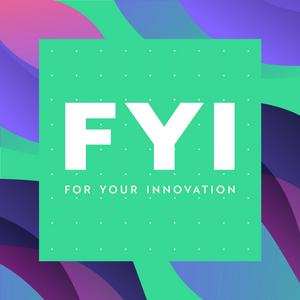
Descarga la app gratuita: radio.net
- Añadir radios y podcasts a favoritos
- Transmisión por Wi-Fi y Bluetooth
- Carplay & Android Auto compatible
- Muchas otras funciones de la app
Descarga la app gratuita: radio.net
- Añadir radios y podcasts a favoritos
- Transmisión por Wi-Fi y Bluetooth
- Carplay & Android Auto compatible
- Muchas otras funciones de la app


FYI - For Your Innovation
Descarga la app,
Escucha.



